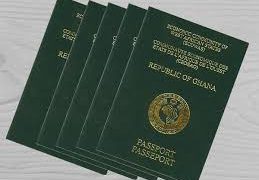Understanding Nigeria’s Currency Slump, and What Happens Next
With its oil wealth, Nigeria should be awash with foreign currency. But years of economic mismanagement have left the country with a debilitating shortage of dollars. In an attempt to fix the problem, President Bola Tinubu relaxed longstanding foreign exchange restrictions shortly after taking office in May 2023. The local naira currency, pegged for years at an artificially high level against the dollar, has since lost 70% about of its value. Tinubu’s goal was to trigger an influx of foreign capital and eventually make Nigeria a more attractive investment destination. The near-term impact was a surge in inflation to a 28-year high, causing a cost-of-living crisis and sparking deadly protests in Africa’s most populous nation.
What’s gone wrong with Nigeria’s economy?
Despite Nigeria being Africa’s largest oil producer, the economy has stagnated for years, its resource riches plundered by a politically connected elite. Corruption is endemic, many state institutions are dysfunctional and armed bandits and Islamist militants roam the country’s north. About 40% of Nigeria’s more than 200 million people live in dire poverty, according to the World Bank, and the higher living costs have added to their ranks. Dollar shortages persist, and businesses also face constant policy uncertainty and power cuts. The government used 68% of the revenue it collected in the first half of 2024 to service debt, an improvement on past years but still not leaving much for anything else. Under previous management, the central bank played a highly unorthodox role, providing loans to small businesses and introducing multiple exchange rates. The system was supposed to boost dollar availability to key parts of the economy, but had the opposite effect, fanning a thriving unofficial currency market that made the naira even more volatile by encouraging speculation.
What’s being done to turn things around?
Within days of taking office, Tinubu partially scrapped popular fuel subsidies that cost the government $10 billion in 2022 alone, and suspended the head of the central bank. The bank’s new leadership allowed the naira to trade more freely, while aggressively raising interest rates. Governor Olayemi Cardoso has increased the benchmark rate by 800 basis points to 26.75% since he took office in September 2023. He’s also worked hard to pay down an overhang of outstanding agreements between the central bank and Nigerian companies to sell them dollars, which has weighed on the naira. In addition, the government is discussing selling oil in naira to billionaire Aliko Dangote, who has built a massive refinery near Lagos with the goal of ending the nation’s crippling reliance on imported refined petroleum. Using the refinery to end this dependence could significantly ease pressure on the local currency.
Is it working?
It’s still a work in progress. The measures were welcomed by the International Monetary Fund and World Bank but have been very painful for ordinary Nigerians. Inflation is close to a three-decade high, largely driven by the naira depreciation and higher gasoline prices. The currency recovered sharply from mid-March until mid-April before falling again to fresh lows. Analysts blame seasonal factors, as rich Nigerians buy dollars to pay for foreign holidays and school fees. For his part, Cardoso says monetary policy is gradually working and the naira is on the mend.
What are foreign investors saying?
There was growing optimism as the naira clawed back from a record low earlier this year that it would find a solid base. But that’s been challenged by the currency’s recent bout of weakness, and investors are keeping their distance while they wait for it to stabilize. Concessional funding from multilateral lenders would improve the dollar supply picture, though there’s been more talk than action on those fronts from Nigerian officials. Government plans for a Eurobond issue were also postponed due to the lack of attractive funding options and it decided to issue a domestic dollar bond instead. That prompted a brief naira rally after the offering was heavily oversubscribed.
How have businesses been affected?
They’ve struggled. More than 700 manufacturing companies shut down in the first quarter of 2023 alone, according to an industry association. Drugmaker GSK Plc, consumer-goods company Procter & Gamble Co. and several other international businesses have exited the country as the currency shortages made it complicated to import goods and repatriate profits. Local business leaders have warned that the higher interest rates could stifle consumer spending and investment.
What’s the prognosis?
Tinubu’s policies, if they survive in the face of popular discontent, should ultimately be good for the economy and lead to stronger and more inclusive growth. The IMF forecasts that output will expand by about 3.1% this year, slightly stronger than 2023. But many Nigerians are struggling to afford even basic necessities, piling pressure on the government to show the policy changes are benefiting the wider population. Desperate crowds have looted food convoys and at least 21 people died during a clampdown by security forces on protests in August that saw demonstrators marching in several cities chanting “we are hungry.”







